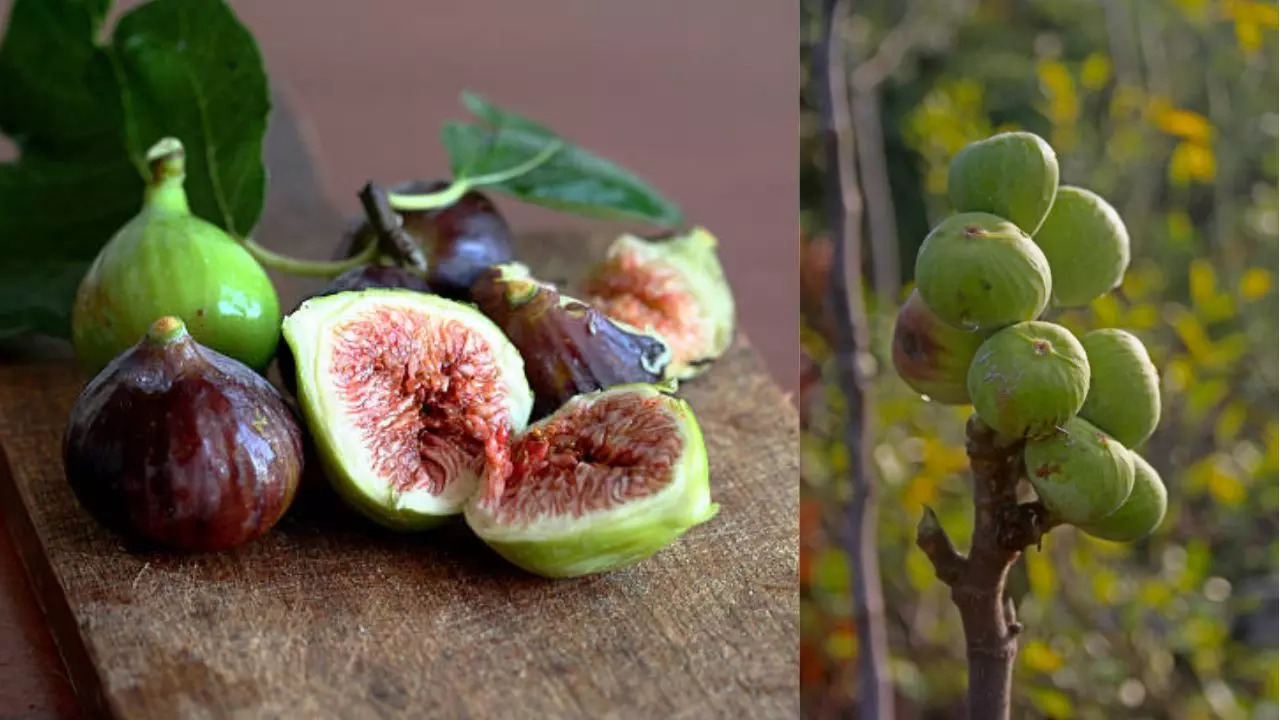Contents
-
news
-
Health
No, figs are not non-vegetarian fruits! Here’s a debunk to a viral claim that talks about wasp pollination
Figs are non-vegetarian – this claim has been making rounds on the internet for the past few days. However, according to food expert Krish Ashok, commercially produced figs in India are not pollinated with the help of wasps. Read on to know more about how figs are made and why you should include them in your daily diet.

Known for its nutritional benefits like promoting gut health, strengthening muscles and improving energy levels, figs also reduce the risk of type 2 diabetes.
“There are no wasps involved in commercially produced figs in India,” says food expert Krish Ashok, who dismisses viral claims that figs are carnivorous. For the last few days, there has been a lot of news on social media that figs are insect pollinated.
also known as FigFig is a delicious fruit that is often eaten in dried form in India. Known for its nutritional benefits like promoting gut health, strengthening muscles and improving energy levels, figs also reduce the risk of type 2 diabetes. However, many are concerned that the fruit may be carnivorous. “All this is true only when you eat a special variety of figs from Turkey called Smyrna, which is pollinated by wasps,” Ashok told his followers in an Instagram Reel. “All the fruit varieties grown in India are common figs which produce fruits parthenocarpically,” he said.
Parthenocarpy is the natural or artificially induced production of fruit without fertilization of the ovule, rendering the fruit seedless. “The fruits develop without the need for pollination, so there are no wasps involved in commercially produced figs in India,” Ashok said.
“And if eating figs makes you non-veg, then I have bad news for you. Even if you eat fancy figs from Turkey, you will be eating maximum portions of 1-2 mg of insects, but even otherwise, you are consuming 1000-20000 mg of insects every day,” Ashok said.
Fig varieties grown and sold commercially in India include Poona, Condria, Mission, Kadota and Brown Turkey.
Why should you include figs in your daily diet?
Figs, native to Western Asia – the Middle East and the Mediterranean region, symbolize longevity and have been consumed since ancient times. This fruit is rich in fiber, antioxidants and some amount of vitamins and minerals. Fig consumption has been linked to several positive health outcomes, some of which include:
high in antioxidants
Both the pulp and peel of the fig are rich in antioxidants – primarily phenolic acids and flavonoids that are absorbed from the digestive tract into the bloodstream and have powerful anti-inflammatory effects in the body.
regulate digestion
The fiber in figs supports bowel regularity because the fruit – high in prebiotics – helps feed anti-inflammatory beneficial probiotic bacteria in the gut. This fruit is also great for people who have irritable bowel syndrome.
Supports menstrual health
Eating dried figs helps ease the symptoms of primary dysmenorrhea – or painful menstruation that is typically experienced one or two days per month by more than half of women worldwide.
Supports weight loss and management
Studies show that eating figs improves satiety and blood sugar regulation after meals, thereby reducing body weight.
Reduces the risk of cancer
The potential effects of figs depend on its ability to inhibit tumor formation and the growth of cancer cells. The natural compounds present in figs also help prevent cancer cells from growing and spreading in the body.
Get the latest news live on Times Now with breaking news and top headlines from around the world.


